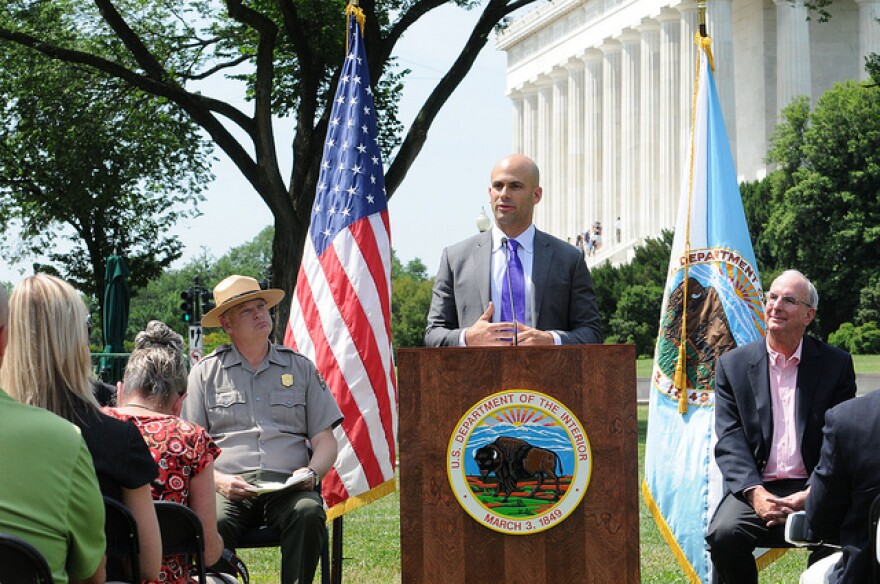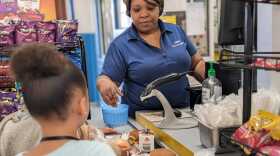North Carolina has lost more than 2,600 farms in the last decade. To fight that trend, the Center for Environmental Farming Systems and the WC Breeze Family Farm are hosting their annual fundraiser. The Farm to Fork Picnic supports beginning farmer training programs.
The Center for Environmental Farming Systems is a partnership of NC State University, North Carolina Agricultural and Technical State University and the NC Department of Agriculture and Consumer Services.
Sam Kass is one of the guest speakers and chefs set to appear this weekend. Sam was President Obama's Senior Advisor for Nutrition Policy. He's now Senior Food analyst at NBC News.
Morning Edition Host Eric Hodge spoke with Kass:
You're a big supporter of healthy eating. What's the connection with training new farmers?
Farmers are the foundation of everything we eat. And if we don’t have talented farmers who are building our soil and ensuring that we’re getting the nutritious food for our future generations, we don’t have a chance to be healthy, so the connection couldn’t be closer.
What got you involved?
As a chef, I was passionate about food and it didn’t take long to start realizing that the choices that we were making in terms of what we were serving people was having a huge impact on their health.
Then the impact on the communities that were producing our food was also profound. And so once I started asking the basic questions, ‘What are the implications of what I’m serving on both the communities that are producing the food and the people that I’m serving it to?’ It sent me down a long path of really getting engaged in politics and agriculture policy and that ended up landing me in the White House and helping the First Lady and the President do all the great work they’ve done on food and sustainability.
If we're losing farmland, what's standing in the way of new farmers getting their own?
There’s a lot of factors at play. For the first time in a century, we’ve actually seen an increase in small farmers which is encouraging, but it’s still small as comparison to the need. So we still have a generation that’s not that interested in farming, one. Two, access to credit has been a big challenge. And we’re seeing a tremendous amount of farmland, as this generation retires, is really going to be up for grab and once you lose that soil, there’s no getting it back. So it’s kind of at a critical moment.
How can chefs work around climate change impacts?
I think chefs have a critical role to play. We’re really like the translators of this issues. We can talk about these issues and what’s happening to farmers on the farm and speak to consumers in a language that they can really understand.
When we talk about greenhouse gas emissions, and all these gasses we can’t see and powerplants, nobody can relate to that. But when we talk about food, it resonates. So when I talk to people, and say our kids, our grandkids aren’t going to be able to enjoy things like chocolate or coffee, wine, shellfish, things of that nature, because of climate change, it really raises get’s people attention.
So I think we can start raising awareness, number one. And two, chefs can make decision about what they’re serving in their restaurants. We know that the most sustainable diets are ones that are balanced and healthy but are also mostly plant-based with quality meats, but ones that are raised in a much more integrated fashion. And if we can sort of rebalance our plate, the food choices that we’re making, could have a dramatic impact on the issue of climate.
You used to be the Obama family's chef. Do they have a favorite meal?
They eat very healthy, very balanced. Nothing fancy. The President doesn’t really like fancy, froufrou food at all. But they like a good burger on the weekends, but lots of vegetables, fish, chicken. But his go-to is a burger.
Kass will be cooking in Durham Saturday June 4, as part of the Farm to Fork fundraiser picnic.












